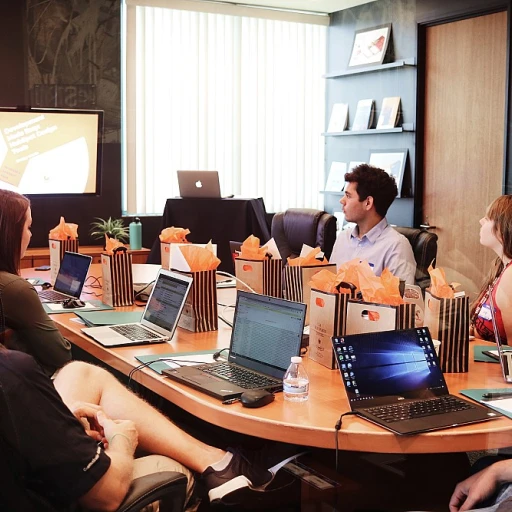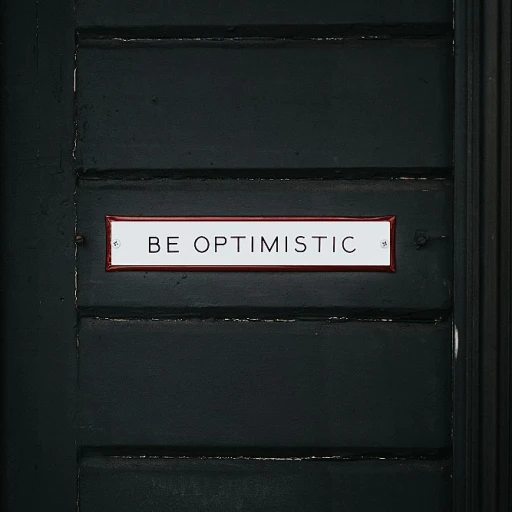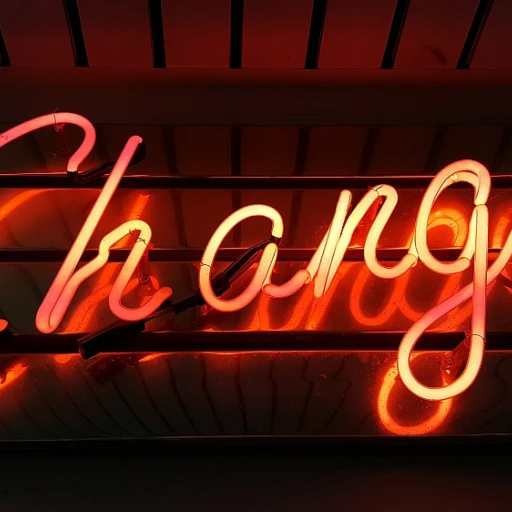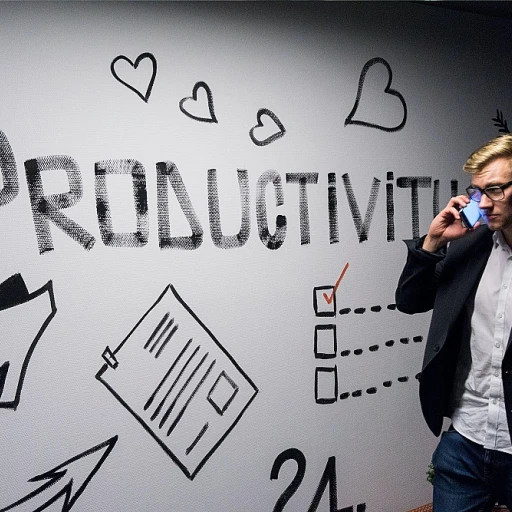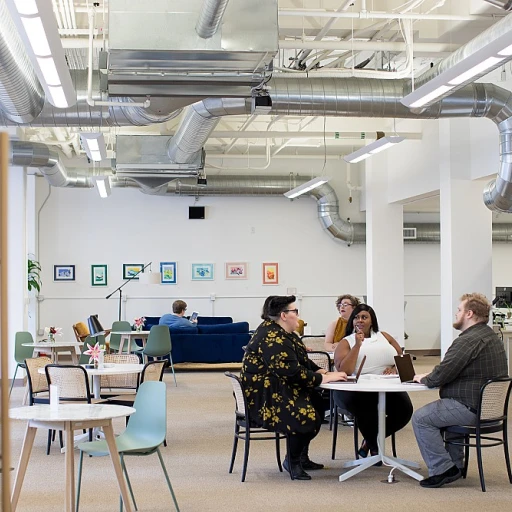
Understanding the impact of jobhire ai on sourcing strategies
How AI is Shaping Modern Candidate Sourcing
The rise of AI-powered job hiring tools is transforming how sourcing professionals approach the job market. With the increasing volume of job applications and resumes, traditional methods often struggle to keep up. AI-driven platforms like jobhire are designed to streamline the process, making it easier to search, filter, and match candidates to the right jobs.
AI tools analyze large datasets from job boards, applications, and resumes, identifying patterns that help recruiters find qualified candidates faster. This means less time spent on manual screening and more focus on engaging with job seekers. By automating repetitive tasks such as resume parsing, cover letter screening, and email replies, these tools free up recruiters to focus on building relationships and improving the candidate experience.
- Efficiency: AI reduces the time required to review applications and resumes, allowing recruiters to focus on high-value tasks.
- Accuracy: Advanced algorithms can match job requirements with candidate profiles more precisely, improving the quality of hires.
- Personalization: Tools like letter generators and resume builders help create personalized cover letters and resumes, enhancing the job application process for job seekers.
Integrating AI into sourcing strategies also supports better communication. Automated email replies and support services ensure that candidates receive timely updates about their applications, reducing frustration and improving the overall job hunting experience. If you want to explore how broader HR systems are adapting to these changes, check out this resource on how ERP systems transform human resources management.
As the recruitment landscape evolves, sourcing professionals need to adapt their strategies to leverage these AI-powered tools. The next sections will dive deeper into the specific features that benefit sourcing professionals, how to address bias, and the challenges that come with integrating AI into your recruitment platform.
Key features of jobhire ai that benefit sourcing professionals
Smart Automation for Faster Candidate Matching
AI-powered jobhire tools are transforming the way sourcing professionals approach the job search process. One of the standout features is automated candidate matching. These platforms analyze resumes, cover letters, and job applications to quickly identify the best fit for each job. This not only saves time but also increases the accuracy of shortlisting candidates. By leveraging machine learning, the tool can learn from previous hiring decisions and improve its recommendations over time.
Personalized Communication at Scale
Another key benefit is the ability to generate personalized cover letters and reply emails. Many jobhire platforms now include a letter generator or resume builder, allowing recruiters to send tailored messages to job seekers. This enhances the candidate experience and helps maintain a professional tone throughout the application process. Automated replies, such as "hello sincerely" or "sincerely apologize for the inconvenience," streamline communication and ensure no application goes unanswered.
Centralized Application Management
Managing multiple job applications can be overwhelming. AI-based jobhire services offer a centralized platform to track all applications, resumes, and cover letters. Recruiters can easily search, filter, and organize candidate information, making the entire process more efficient. Integration with other HR tools, such as ERP systems, further enhances this experience. For more insights on how these integrations can transform your workflow, check out this article on how ERP systems transform human resources management.
Enhanced Support and User Experience
Support is crucial in recruitment. Many jobhire platforms now provide dedicated support services, making it easy to reach support or get help with job applications. Whether you need to apologize for a delayed reply or offer guidance on writing personalized cover letters, these tools are designed to support both recruiters and job seekers. Features like jobhire mar and jobhire happy focus on improving the overall experience for everyone involved in the job hunting process.
- Automated resume and cover letter analysis
- Personalized communication tools
- Centralized platform for managing applications
- Integrated support services for recruiters and job seekers
Addressing bias and improving diversity with jobhire ai
Reducing Bias in Resume Screening
One of the most significant challenges in recruitment is unconscious bias during resume and cover letter screening. AI-powered jobhire tools are designed to minimize this bias by evaluating applications based on objective criteria. These tools analyze resumes and cover letters without being influenced by personal details unrelated to job performance. As a result, job seekers from diverse backgrounds have a fairer chance during the job search process.
Promoting Diversity in Candidate Pools
Jobhire AI platforms help recruiters identify a broader range of candidates by searching beyond traditional keywords. This means applications from individuals with non-traditional experiences or education are less likely to be overlooked. By using AI-driven search and resume builder features, recruiters can discover talent that might otherwise be missed, supporting diversity and inclusion goals in job applications.
Personalized Communication and Support
AI tools can generate personalized cover letters and reply emails, ensuring every candidate receives a thoughtful response. This not only improves the candidate experience but also helps job seekers feel valued, regardless of the outcome of their application. If candidates need assistance, support jobhire services are available to address concerns, apologize for any inconvenience, and provide guidance on using the platform or letter generator tools. For example, if a job seeker receives an automated reply jobhire email, it often includes a message like "hello sincerely" or "sincerely apologize" to maintain a human touch.
Ensuring Fairness Across the Hiring Process
AI-based tools continuously monitor and adjust their algorithms to reduce bias over time. They use data from past applications, jobs, and candidate feedback to improve fairness in job matching. This ongoing process helps recruiters make more equitable decisions and supports organizations in building diverse teams. If you are exploring alternative solutions for unbiased candidate sourcing, consider reading about alternatives to Bullhorn for candidate sourcing for additional insights.
- Objective resume and cover letter screening
- Broader, more diverse candidate searches
- Personalized, supportive communication
- Continuous improvement for fairness
Integrating jobhire ai with existing recruitment tools
Seamless Workflow: Connecting Jobhire AI with Your Recruitment Stack
Integrating jobhire AI into your existing recruitment tools can feel overwhelming at first, but it’s a crucial step for maximizing efficiency in candidate sourcing. Most organizations already use a mix of platforms for job postings, resume screening, and candidate communications. Jobhire AI is designed to complement these systems, not replace them.
- API and Platform Compatibility: Jobhire AI typically offers APIs or built-in connectors that allow it to sync with popular applicant tracking systems (ATS), job boards, and resume databases. This means you can automate the flow of applications, resumes, and cover letters between platforms, reducing manual data entry and saving valuable time.
- Automated Communication: Features like automated reply jobhire and personalized cover letter generation help recruiters respond to job seekers faster. For example, the tool can send a tailored reply or application status update via email, improving the candidate experience and supporting jobhire happy outcomes.
- Resume and Cover Letter Tools: Integration with resume builder and letter generator services allows for quick review and customization of candidate documents. This is especially useful when managing high volumes of job applications or when you need to generate personalized cover letters at scale.
- Support and Troubleshooting: If you encounter issues during integration, most jobhire AI platforms offer dedicated support jobhire services. You can reach support via email or chat, and they often provide resources to help you apologize inconvenience or sincerely apologize for any delays in candidate communications.
Best Practices for a Smooth Integration
To get the most out of jobhire AI, consider these practical steps:
- Map out your current recruitment workflow and identify where jobhire AI can automate repetitive tasks, such as job search filtering or application screening.
- Test the integration with a small batch of jobs and applications before a full rollout. This helps catch any issues early and ensures a smooth experience for both recruiters and job seekers.
- Train your team on how to use new features, like the personalized cover letter tool or automated reply functions, to enhance the overall job hunting process.
- Regularly review feedback from candidates and recruiters to refine your processes and improve the service experience.
With thoughtful integration, jobhire AI can become a powerful ally in your recruitment toolkit, streamlining everything from job posting to candidate communication and making the entire job application journey more efficient for everyone involved.
Challenges and limitations of using jobhire ai in sourcing
Common Obstacles When Using AI in Recruitment
While AI-powered jobhire tools have transformed the way recruiters handle job applications and resume screening, they are not without their challenges. Many sourcing professionals encounter issues that can impact the overall recruitment experience for both recruiters and job seekers.
- Data Quality and Integration: AI tools rely heavily on the quality of data they process. Inconsistent or incomplete job application data can lead to inaccurate recommendations or missed candidates. Integrating these tools with existing platforms and resume builders can also be complex, sometimes requiring additional support or technical service.
- Transparency and Explainability: Job seekers and recruiters often want to understand how decisions are made. When an AI tool screens a resume or generates a personalized cover letter, the logic behind its choices may not always be clear. This lack of transparency can lead to concerns about fairness and trust in the application process.
- Bias and Fairness: Although AI can help address bias, it can also unintentionally reinforce it if the underlying data is biased. This can affect diversity in job search results and job applications, making it essential to regularly audit and update the algorithms.
- Candidate Experience: Automated replies and letter generators can save time, but they may feel impersonal. Job seekers might receive generic responses to their applications or cover letters, which can impact their perception of the platform and the employer.
- Technical Support and User Training: Not all recruiters or job seekers are comfortable with new technology. Providing accessible support jobhire services, clear instructions, and responsive email or chat support is crucial. If users encounter issues, such as errors in the resume builder or problems submitting a job application, they need to feel free to reach support quickly.
Balancing Automation and Human Touch
AI tools are designed to streamline the job search and hiring process, but over-reliance on automation can sometimes lead to missed opportunities or misunderstandings. For example, a tool might filter out a qualified candidate based on rigid criteria, or generate a cover letter that does not fully reflect a candidate’s experience. Recruiters should regularly review automated processes and maintain a balance between efficiency and personalized support.
Security and Privacy Concerns
Handling sensitive data such as resumes, cover letters, and job applications requires robust security measures. Jobhire platforms must ensure that user data is protected and that privacy policies are clear. Any breach or misuse of data can seriously damage trust and the reputation of the service.
Continuous Improvement and Feedback
To address these challenges, it’s important for jobhire platforms to gather feedback from both recruiters and job seekers. Regular updates, improved support, and transparent communication—such as apologizing for inconvenience when issues arise—help build credibility and trust. If you encounter problems, don’t hesitate to reach support or use the free reach options provided by the platform.
Future trends in candidate sourcing with jobhire ai
Emerging Technologies Shaping Candidate Sourcing
AI-powered jobhire tools are rapidly evolving, and the future of candidate sourcing looks promising for both recruiters and job seekers. As these platforms become more sophisticated, we are seeing a shift in how jobs are matched with candidates, making the job search process more efficient and personalized.Personalization and Automation in Job Applications
One of the most significant trends is the rise of personalized cover letter and resume generation. Tools now offer tailored cover letters and resumes based on the specific requirements of each job application. This not only saves time for job seekers but also increases the chances of getting a reply from employers. The integration of resume builders and letter generators into jobhire platforms is making job hunting more accessible and less stressful.Seamless Integration Across Platforms
Future sourcing tools are focusing on seamless integration with existing recruitment services. Whether it’s syncing with email platforms for quick communication or connecting with job boards to widen the search, these integrations help recruiters manage applications more effectively. Jobhire platforms are also enhancing support services, making it easier for users to reach support or apologize for any inconvenience during the application process.Data-Driven Decision Making
AI-based sourcing tools are increasingly using data analytics to improve the job matching process. By analyzing large volumes of applications and resumes, these tools can identify trends and suggest improvements in job descriptions, application processes, and candidate experience. This data-driven approach helps recruiters find the right talent faster and supports job seekers in targeting the right jobs.Focus on Candidate Experience and Diversity
The future of candidate sourcing is not just about efficiency, but also about creating a positive experience for job seekers. Platforms are working to ensure that every application, cover letter, and reply is handled with care. There is also a growing emphasis on reducing bias and supporting diversity in hiring, with AI tools being refined to minimize discrimination and provide equal opportunities for all candidates.Continuous Improvement and Support
Jobhire platforms are investing in ongoing support and service improvements. Features like quick reply jobhire options, personalized cover letters, and easy access to support jobhire teams are becoming standard. If users encounter issues, they can now sincerely apologize and receive prompt assistance, ensuring a smooth job application journey.- Personalized cover letter and resume builder tools
- Automated job application tracking and reply features
- Enhanced support services for job seekers
- Data-driven insights for recruiters
- Commitment to diversity and unbiased hiring


